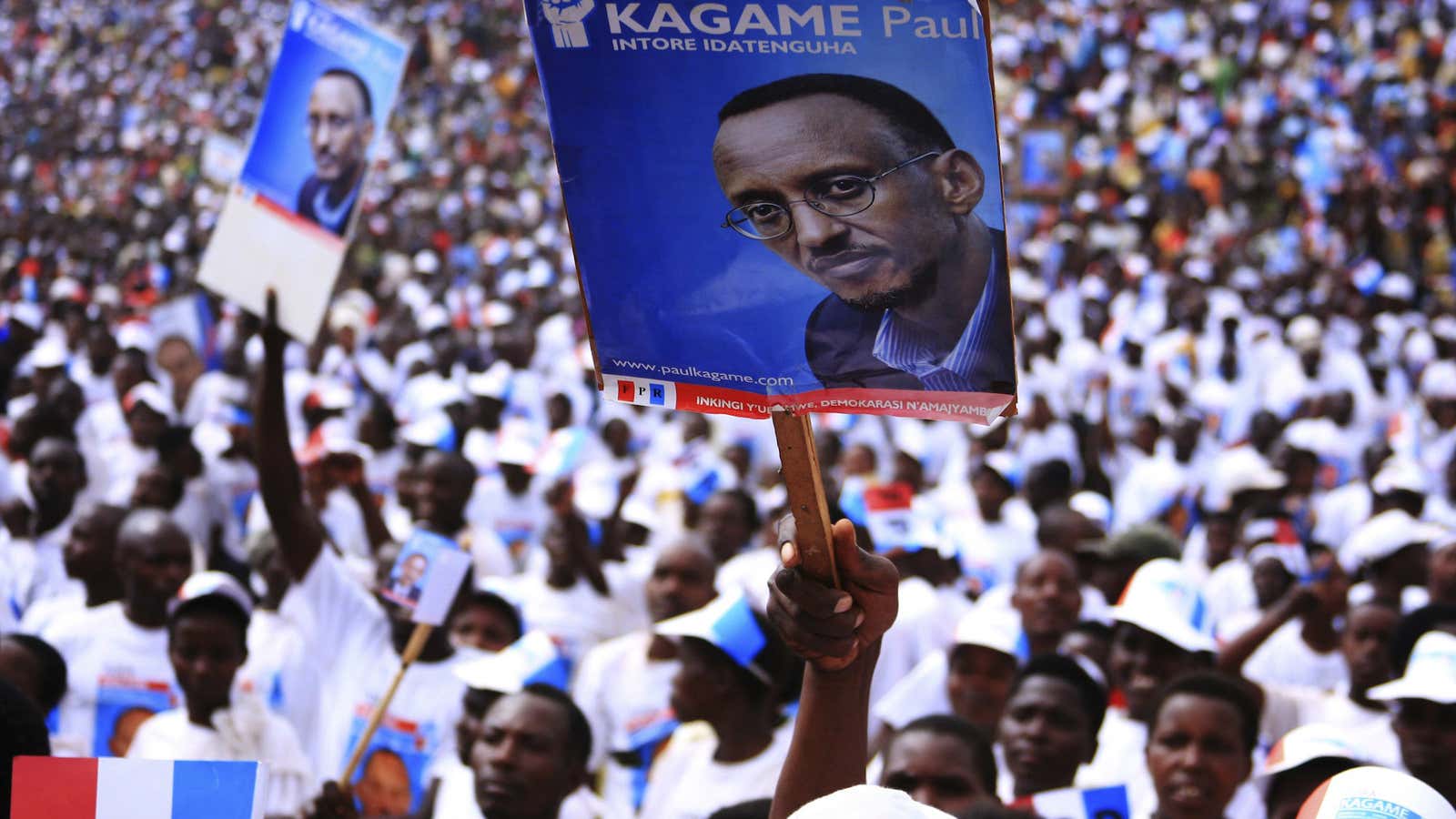Rwanda’s highest court ruled today (Oct 8) that president Paul Kagame should be able to run for a third term. The supreme court rejected challenges from the opposition party over parliament’s move to abolish term limits this summer, stating, “All depends on the opinions of the people.”
The president, in power since 2003, helped lead his country out of the chaos of the 1994 genocide that killed an estimated 800,000 people. A poll in August claimed that a country-wide survey found only 10 Rwandans that opposed a third term for Kagame.
Whether or not Kagame will hold onto power has become a question of whether Africa’s “big man syndrome“ will continue in a country that has made remarkable progress transforming itself from a war-torn state to one of the stablest and fastest growing economies on the continent.
Leaders holding fast to power continues to be a trademark of African politics. This month, the Congo Republic is voting on constitutional changes that would allow president Denis Sassou Nguesso, in power for decades, to stay in office. Burundi’s president Pierre Nkurunziza’s run for a third term in July resulted in months of protests and an attempted coup.
For years, Kagame had said that when his two terms were up he would step aside. Then in July, the government’s largely pro-Kagame parliament passed a motion calling for a referendum to amend the constitution’s stance on terms. The referendum is unlikely to fail, given the government’s tight control over domestic media and civil society, as well as widespread public support for Kagame.
Kagame has not announced that he would run again in the 2017 election, but has hinted he is open to the idea, asserting that “Term limits have nothing to do with democracy.” In 2017, he will have been in office for 14 years and will serve another seven years if he is re-elected.
